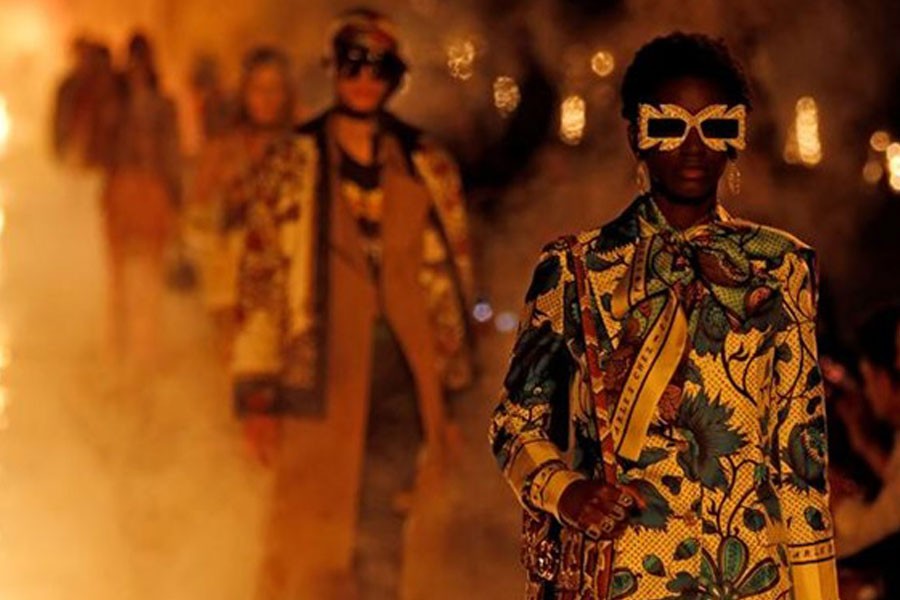Fashion company Kering has announced that it will no longer use models who are under the age of 18.
The French luxury group owns several major fashion houses, including Gucci, Saint Laurent and Alexander McQueen.
The policy will come into effect in time for the 2020-2021 Autumn/Winter collections, Kering said.
Chief executive François Henri-Pinault said in a statement that the company was "conscious of the influence exerted on younger generations" by its images.
"We believe that we have a responsibility to put forward the best possible practices in the luxury sector, and we hope to create a movement that will encourage others to follow suit," he said.
Marie-Claire Daveu, Kering's chief sustainability officer, added: "The physiological and psychological maturity of models aged over 18 seems more appropriate to the rhythm and demands that are involved in this profession."
Sara Ziff, founder of the campaign group Model Alliance, said the announcement was "a positive step towards eliminating the intense pressure models currently face to maintain an adolescent physique and to go to extremes to lose weight".
But she added that it lacks a "mechanism for actual enforcement" - and that she fears the pledge could "amount to little more than lip service to critical issues that have plagued the industry for far too long".
Kering's decision comes as fashion brands are increasingly trying to become more ethical, both in their designs and in their working practices, says a BBC report.
In August last year Condé Nast, which publishes Vogue magazine, announced that it would not use models under the age of 18 in editorial shoots, unless they were the subject of an article.
"This is partly the result of an internal reckoning," an editorial in Vogue said at the time. "Vogue, along with a number of other publications, has played a role in making it routine for children - since that's what they are - to be dressed and marketed as glamorous adults."
It continued: "No more: it's not right for us, it's not right for our readers, and it's not right for the young models competing to appear in these pages. While we can't rewrite the past, we can commit to a better future."
The Council of Fashion Designers of America (CFDA) made a similar declaration last year. Its CEO Steven Kolb said: "Young models are still developing. There can be a lack of the confidence, strength, experience, and maturity it takes to deal with the pressures of this work."
In 2017, both Kering and a rival fashion group LVMH signed a charter agreeing to - among other things - stop hiring models who were under the age of 16.
A number of fashion designers have also pledged not to hire ultra-thin models, and not to use exotic animal skins and fur in their designs.
What's wrong with hiring young models?
It has long been common across the industry to cast models who were under 18 - and indeed, many supermodels got their start in the fashion industry at a young age.
Naomi Campbell, now 48, was just shy of 16 when she launched her career. Kate Moss, 45, was discovered at the age of 14. Brooke Shields was just 14 when she appeared on the front cover of Vogue in February 1980.
Currently, 17-year-old Kaia Gerber is a rising star, while the late Karl Lagerfeld's godson Hudson Kroenig, 11, was regularly seen on the catwalk.
But a spotlight was shone on the treatment of young models in October 2017, when 14-year-old Russian model Vlada Dzyuba collapsed backstage at Shanghai Fashion Week and later died in hospital.
Vogue, in making its decision, also cited a number of allegations of sexual harassment in the fashion industry, which were publicised as part of the #MeToo movement.
It added that in the mid-1980s, when Campbell launched her career, there were so few fashion shows a year that "a model could stay in school if she wished" - but nowadays the work is much more demanding.


